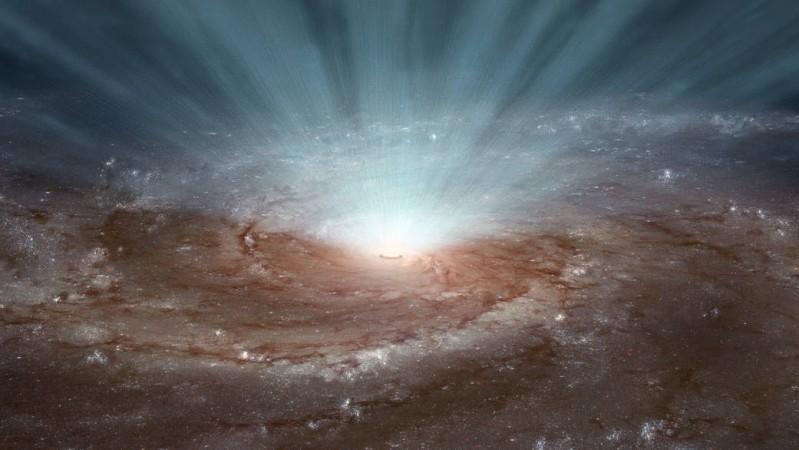
Russian astronomers found a newly-born black hole in the Ophiuchus constellation. They dedicated it to the legendary physicist Stephen Hawking who passed away recently.
Scientists at the Moscow State University detected a gamma ray burst, indicative of the death and eventual collapse of a star, two days after Hawking's death. The collapsed star will eventually lead to the formation of a black hole in its place, according to a report by RT.
A black hole is formed when a star reaches the end of its life and collapses into itself. At its core, the density of a black hole is believed to be infinite, its gravity infinite, and mass enormous. While black holes have not been directly observed till now, scientists like Stephen Hawking dedicated their entire lives to studying them and their role in the evolution of the universe.
Gamma ray bursts are not that uncommon, notes the report, and can be detected almost every day. The challenge, however, is to refocus telescopes to find the origin of the energy and capture it. That is because gamma ray burst can last anywhere between milliseconds to tens of seconds. Only this time, the astronomers got lucky.
The telescope used to capture this burst is the MASTER-IAC robotic telescope installed in Tenerife, Spain, according to the report. It managed to focus on the right spot in the night sky fast enough to capture an increase in brightness that comes with the burst just long enough to retain information about its source.
"MASTER devoted this optical discovery to Stephen Hawking, the Lord of Black Holes," wrote the researchers in the Astronomer's Telegram journal.
The Ophiuchus constellation is northwest from the center of the Milky Way galaxy at the "celestial equator". It is close to the constellations Hercules, Serpens, and Aquila, opposite Orion, notes RT. Ophiuchus is known to be a large cluster, but it remains one of the lest observed groups in the galaxy.
The largest star in the Ophiuchus is the Ras Alhague and is about 48.6 light years from Earth.
This new black hole was registered under the code GRB180316A on March 16. Stephen Hawking passed away on March 14 due to complications from his 50-year fight against ALS. He will be laid to rest March 31 near Sir Isaac Newton's grave.














